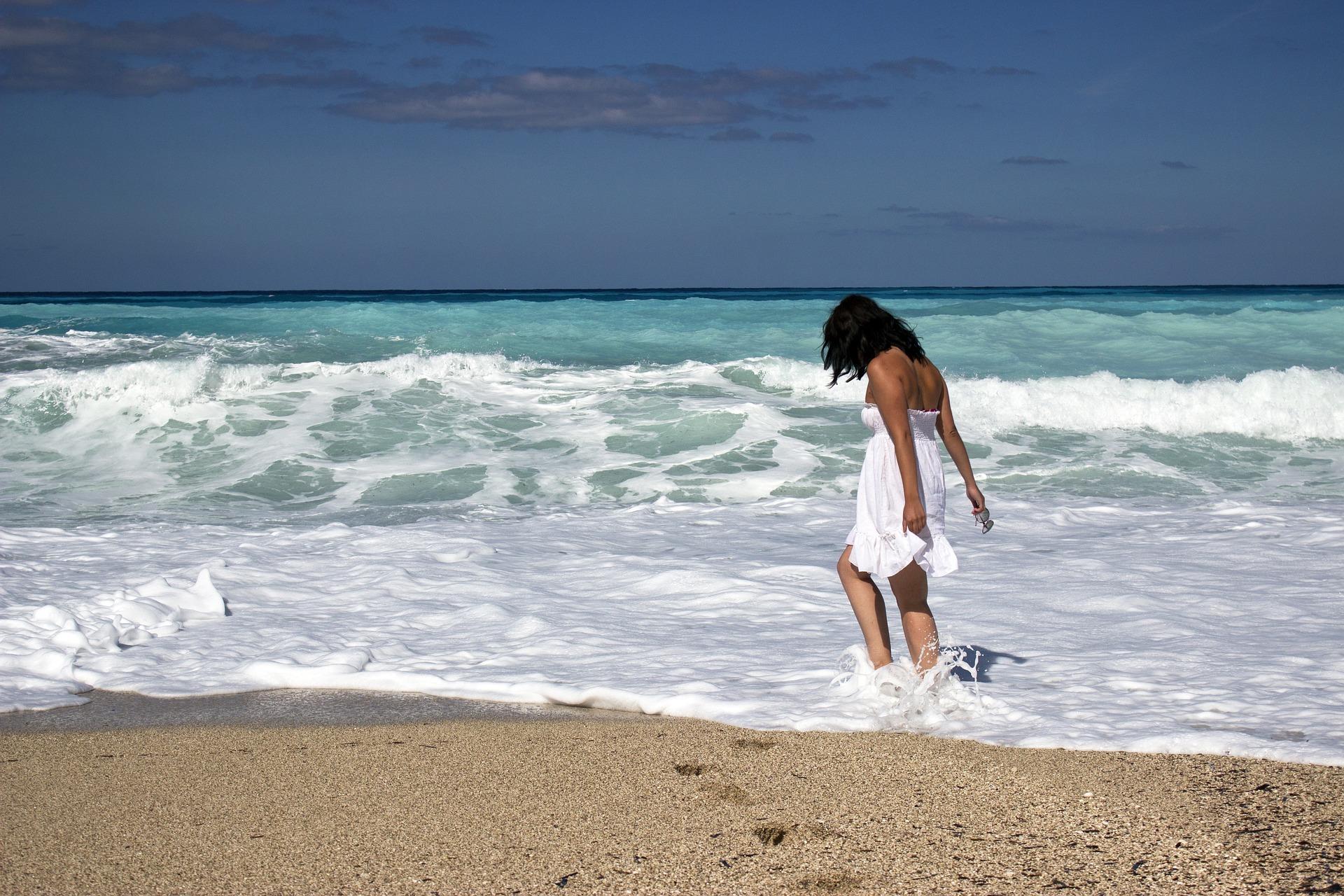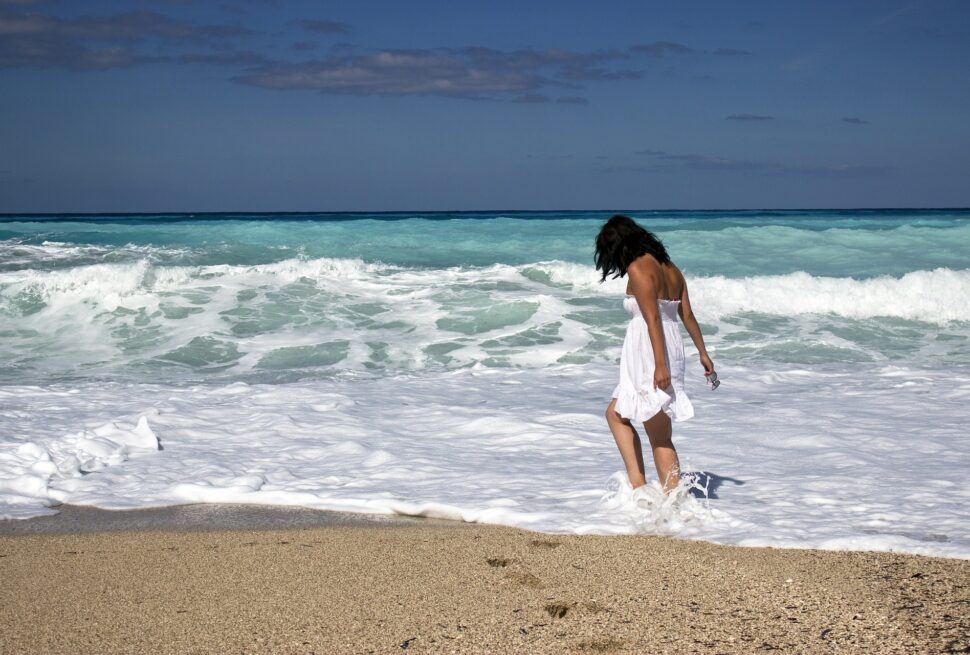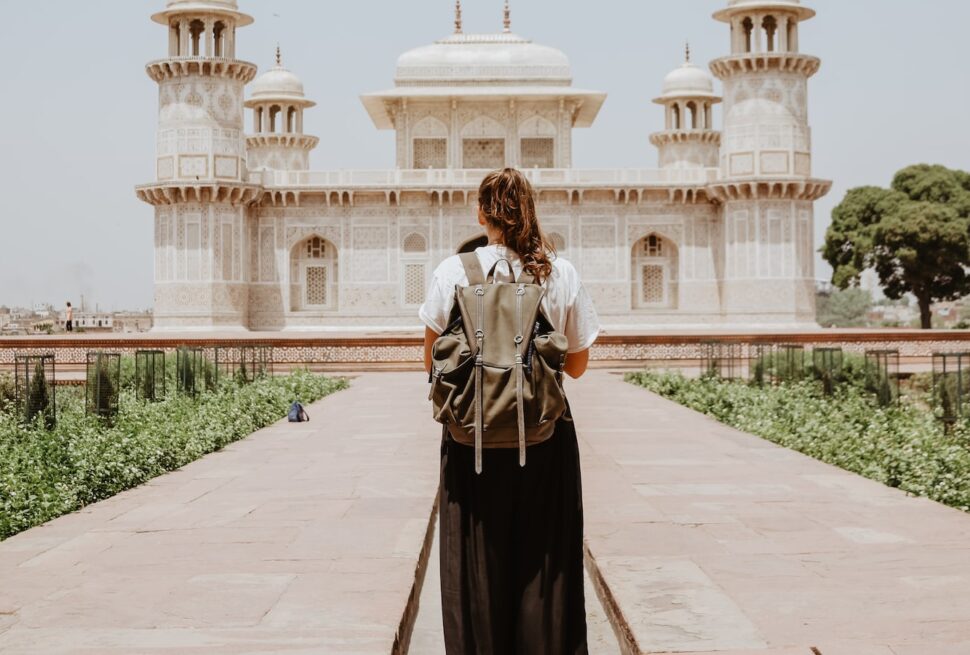Hey there, wanderlust enthusiasts! It’s no secret that the world has been turned upside down by the ongoing global pandemic. Among the myriad changes we’ve experienced, one that has hit us particularly hard is the implementation of travel restrictions. Now, for those of us who thrive on exploration and adventure, this has seriously dampened our spirits. But have you ever stopped to think about the impact these restrictions are having on our mental health? In this article, we’ll dive deep into the effects travel limitations have on our well-being and offer some tips on coping with wanderlust in these trying times. So, grab a cuppa, get cozy, and let’s unpack the impact of travel restrictions on our mental health!
1. “Stuck at Home: How Travel Restrictions are Affecting our Mental Health”
The global travel restrictions brought on by the COVID-19 pandemic have undoubtedly affected our mental health. The feeling of being stuck at home for months on end can take its toll on our well-being. Fortunately, there are ways to manage this situation and stay positive, even if we can’t physically travel at the moment.
Exploring Virtual Destinations:
While physical travel may not be possible right now, we can still satisfy our wanderlust by exploring virtual destinations. Numerous websites and platforms offer virtual tours of famous landmarks, museums, and cities around the world. Take a virtual stroll through the streets of Paris, visit the majestic Taj Mahal, or dive into the vibrant marine life of the Great Barrier Reef. These virtual experiences can offer a much-needed escape and provide inspiration for future trips.
2. “Wanderlust Blues: The Psychological Toll of Travel Restrictions”
Are you suffering from wanderlust blues due to the travel restrictions imposed in recent times? Don’t worry, we’ve got your back! While we may not be able to teleport you to your dream destinations, we can certainly provide some inspiration to help you cope with your wanderlust. Here are a few tips to help you satisfy your travel cravings:
1. Explore local gems: Even if international travel is on hold, there are likely numerous hidden gems waiting to be discovered right in your own backyard. Do some research and unearth the natural wonders, historical sites, and cultural experiences that are within driving distance. Not only will you save on travel costs, but you’ll also support local businesses.
2. Plan virtual vacations: If your travel budget is tight or you cannot physically travel at the moment, why not embark on a virtual adventure? There are countless travel documentaries, virtual tours, and webcams available online that can transport you to different corners of the world without leaving your couch. Simply sit back, relax, and let your imagination run wild as you virtually explore iconic landmarks, vibrant cities, and breathtaking landscapes.
3. “Cabin Fever and Wanderlust: Exploring the Link between Travel Restrictions and Mental Well-being”
As travel restrictions ease around the world, many people are experiencing a strong desire to get out and explore. This desire, often referred to as wanderlust, is a natural response to extended periods of being confined to one place. Cabin fever, on the other hand, is the feeling of restlessness and irritability that can arise from being stuck indoors for long periods of time. Research has shown that there is a strong link between travel restrictions and mental well-being, as traveling and experiencing new environments can have a positive impact on our mood and overall mental health.
If you’re feeling the effects of cabin fever and are ready to satisfy your wanderlust, there are plenty of travel destinations that can help rejuvenate your mind and body. Whether you prefer a beach getaway, an adventure in the mountains, or a cultural city escape, there are options to suit every preference and budget. Consider destinations like Bali, with its stunning beaches and beautiful landscapes, or the Swiss Alps, which offer endless opportunities for outdoor activities such as hiking and skiing. If you’re more of a city dweller, destinations like Barcelona or Tokyo can provide a vibrant cultural experience.
- Transportation: When planning your trip, consider the transportation options available to you. Flights can be a convenient choice for long-distance travel, while trains or buses can be more suitable for shorter distances. Look for affordable deals and consider using budget airlines or public transportation to save money.
- Accommodations: Depending on your budget and preferences, there are various accommodation options to choose from. Hotels and resorts offer convenience and comfort, while vacation rentals or hostels can be more budget-friendly. Don’t forget to read reviews and check the amenities offered to ensure a pleasant stay.
- Itinerary: Plan your itinerary based on your interests and the duration of your trip. Research popular attractions, landmarks, and activities in your chosen destination. Make a list of must-see places and prioritize accordingly. However, leave some room for flexibility to allow for unexpected discoveries and relaxation during your trip.
- Additional Tips: Don’t forget to pack essentials like sunscreen, comfortable shoes, and an adapter for your electronics. Familiarize yourself with local customs and etiquette to ensure respectful behavior. Lastly, consider travel insurance to protect yourself from unexpected events.
Remember, traveling is not only an opportunity to explore new places, but also to take care of your mental well-being. So, don’t delay any further! Start planning your next adventure and embrace the freedom to travel once again.
4. “The Unexpected Consequences: Why Travel Restrictions are Taking a Toll on Mental Health”
4.
As travel enthusiasts, we all understand the joy and excitement that comes with exploring new destinations. However, the ongoing travel restrictions due to the COVID-19 pandemic have brought about some unexpected consequences, including their impact on our mental health. Let’s take a closer look at why travel restrictions are taking a toll on our well-being:
1. Limited opportunities for escape: Travel has always been a means of escaping the daily stresses of life and immersing ourselves in new experiences. With restrictions in place, our ability to venture out and create new memories has been greatly reduced. This can lead to feelings of boredom, restlessness, and even anxiety.
2. Missing out on connections: Traveling allows us to meet new people, forge friendships, and connect with different cultures. The lack of travel opportunities has resulted in a sense of isolation and an inability to broaden our social circles. These missed connections can negatively impact our mental well-being.
5. “From Adventurous to Anxious: Unraveling the Impact of Travel Restrictions on our Minds”
5.
Travel restrictions have undoubtedly taken a toll on our wanderlust-filled souls. The inability to explore new destinations and experience different cultures has left many of us feeling restless and a bit anxious. However, it’s essential to unravel the impact of these restrictions on our minds and find alternative ways to satisfy our travel cravings. Here are a few thoughts to consider:
- Rediscovering Local Gems: While international travel may be limited, why not turn your attention to exploring the hidden gems in your own backyard? Take a road trip to nearby towns and cities, embark on hiking trails in national parks, or discover lesser-known attractions in your region. You might be surprised to find incredible wonders just a stone’s throw away!
- Virtual Experiences: Thanks to technology, there are countless virtual travel experiences available to transport you to far-off destinations. From online tours of famous landmarks to virtual cooking classes taught by local chefs, you can still immerse yourself in the magic of travel from the comfort of your home. Grab your favorite snack, turn on your laptop, and let the virtual world take you on an unforgettable adventure.
6. “Roaming Restrictions: How Limited Travel is Impacting our Mental Health”
6.
With travel restrictions in place around the world, our ability to explore new destinations and experience different cultures has been severely limited. This lack of travel opportunities has had a significant impact on our mental health. Let’s take a closer look at how limited travel is affecting us:
1. Restlessness and boredom: The inability to break free from our routine and immerse ourselves in new surroundings has left many of us feeling restless and bored. The excitement and anticipation that comes with planning a trip and exploring a new destination are no longer accessible to us, resulting in a lack of stimulation and a sense of monotony.
2. Increased stress and anxiety: Traveling often serves as a means of escape from the stressors of everyday life, providing a much-needed break and relaxation. Without those opportunities, stress and anxiety levels have risen significantly. The absence of new environments, adventures, and the positive impact they have on our mental well-being has left many feeling overwhelmed and mentally exhausted.
7. ”Breaking Free from the Mental Chains: Understanding the Psychological Impact of Travel Restrictions”
As travel enthusiasts, we understand the frustration and longing caused by the ongoing travel restrictions. The inability to explore new destinations and experience different cultures can take a toll on our mental well-being. In this post, we aim to shed light on the psychological impact of travel restrictions and provide you with some tips to cope with the situation.
1. Wander through virtual travel experiences:
- Immerse yourself in virtual reality tours and online travel documentaries.
- Visit virtual museums and landmarks from the comfort of your own home.
- Engage in online cultural workshops or cooking classes to learn about new traditions and cuisines.
2. Seek solace in nature:
- Explore local parks, hiking trails, or beaches in your area, allowing you to reconnect with the beauty of the natural world.
- Consider a road trip to secluded destinations where social distancing is possible.
- Go camping or spend a night under the stars, rejuvenating your mind away from the chaos of daily life.
8. “Travel Restrictions and Mental Health: A Closer Look at the Emotional Struggles”
It’s no secret that travel restrictions brought on by the global pandemic have had a significant impact on our lives. Not only have they limited our ability to explore new destinations and indulge in our wanderlust, but they have also taken a toll on our mental health. In this section, we delve deeper into the emotional struggles caused by travel restrictions and offer some insights to help you navigate through these challenging times.
Feeling of Restlessness: With borders closed and movement restrictions in place, many of us are experiencing a sense of restlessness and longing to escape our current surroundings. This feeling is completely natural and understandable, especially for those with a strong sense of adventure. To cope with this, try incorporating some travel-related activities into your daily routine. This could include watching travel documentaries, reading travel blogs, or even planning future trips to keep that excitement alive.
Social Isolation and Loneliness: Socialization and human connection are vital for our mental wellbeing, and the lack of these opportunities while under travel restrictions can contribute to feelings of loneliness and isolation. To combat this, consider reaching out to loved ones via virtual platforms or joining online travel communities where you can connect with other travel enthusiasts. Additionally, engaging in activities that promote self-care and self-reflection, such as journaling, meditation, or taking up a new hobby, can also help alleviate these feelings.
9. “Missing Escape: The Emotional Effects of Travel Restrictions on Mental Health”
Are you feeling the emotional toll of travel restrictions on your mental health? Don’t worry, we’re here to help you find ways to escape and regain that sense of wanderlust! While you may not be able to hop on a plane and jet off to your dream destination just yet, there are still plenty of alternatives to satisfy your travel cravings. Here are a few suggestions to help you beat the travel blues:
- Explore your own backyard: Sometimes we overlook the incredible sights and experiences that are right on our doorstep. Take this opportunity to discover hidden gems in your own city or country. Be a tourist in your hometown, visit museums, parks, and landmarks you’ve never been to before.
- Virtual travel: Thanks to technology, you can virtually wander through the streets of Paris, admire the beauty of the Great Barrier Reef, or explore ancient ruins around the world. With just a click, you can transport yourself to far-off places and experience the thrill of discovery from the comfort of your home.
Remember, these travel restrictions won’t last forever. In the meantime, it’s essential to take care of your mental health and find alternative ways to satisfy your wanderlust. These suggestions can provide a temporary escape and help you stay positive until you can embark on your next adventure. Stay optimistic, and soon enough, you’ll be packing your bags and creating new memories!
10. “Beyond Boundaries: Examining the Psychological Consequences of Travel Restrictions
Travel restrictions have undeniably become a widespread phenomenon in recent times, and they have left many avid travelers yearning to explore the world with an undeniable sense of wanderlust. The ongoing pandemic and other unforeseen events have not only limited our physical mobility but have also brought about certain psychological consequences that are worth examining.
1. **Feelings of restlessness and impatience:** Being confined to a particular region for an extended period can often lead to restlessness and impatience, as the urge to embark on new adventures and immerse oneself in different cultures remains unfulfilled. The longing for new experiences can result in feelings of frustration and even a decline in mental well-being.
2. **Loss of motivation and sense of purpose:** Traveling is not merely about leisure; it also provides a sense of purpose and motivation for many. Exploring new destinations, interacting with diverse people, and discovering oneself are all factors that contribute to personal growth. When these experiences are put on hold, it can lead to a decreased sense of purpose and motivation.
In conclusion, it is undeniable that travel restrictions have had a significant impact on mental health. The inability to explore new places, meet new people, and experience different cultures has left many feeling trapped and isolated. The longing for adventure and the overwhelming desire to escape the monotony of daily life has taken a toll on our psychological well-being.
Not being able to travel has affected our mental health in various ways. The absence of vacation breaks has lead to heightened stress levels and burnout. Our minds and bodies crave the rejuvenating effects of a change of scenery, and without it, we find ourselves stuck in a never-ending cycle of work and responsibilities.
Moreover, the lack of travel has deprived us of the opportunity to disconnect from our daily worries. By venturing into new environments and immersing ourselves in unfamiliar surroundings, we gain a fresh perspective on life’s challenges. The absence of this change in scenery has made it difficult for us to let go of our stress and find much-needed relaxation.
Additionally, travel restrictions have taken away the chance for personal growth and self-discovery. Through exploring new places, we discover aspects of ourselves that we never knew existed. Travel allows us to step out of our comfort zones, pushing boundaries and fostering personal development. Without these opportunities, we may feel stagnant and unfulfilled.
On a broader scale, the restriction of travel has also affected the tourism industry, leaving many people unemployed and struggling financially. This adds another layer of stress and anxiety on individuals who rely on tourism for their livelihoods.
While it may be disheartening to acknowledge the impact of travel restrictions on our mental health, it is crucial to remember that this situation will not last forever. In the meantime, we can find solace in alternative forms of leisure and self-care. Exploring our local communities, engaging in outdoor activities, or even planning virtual trips can serve as temporary substitutes for the travel experiences we yearn for.
Ultimately, it is important to prioritize our mental well-being during these challenging times. By acknowledging the impact of travel restrictions on our mental health, we can better understand and address the emotional difficulties we may face. Hang in there, keep dreaming, and remember that the world will be waiting for us when it is safe to travel again.




